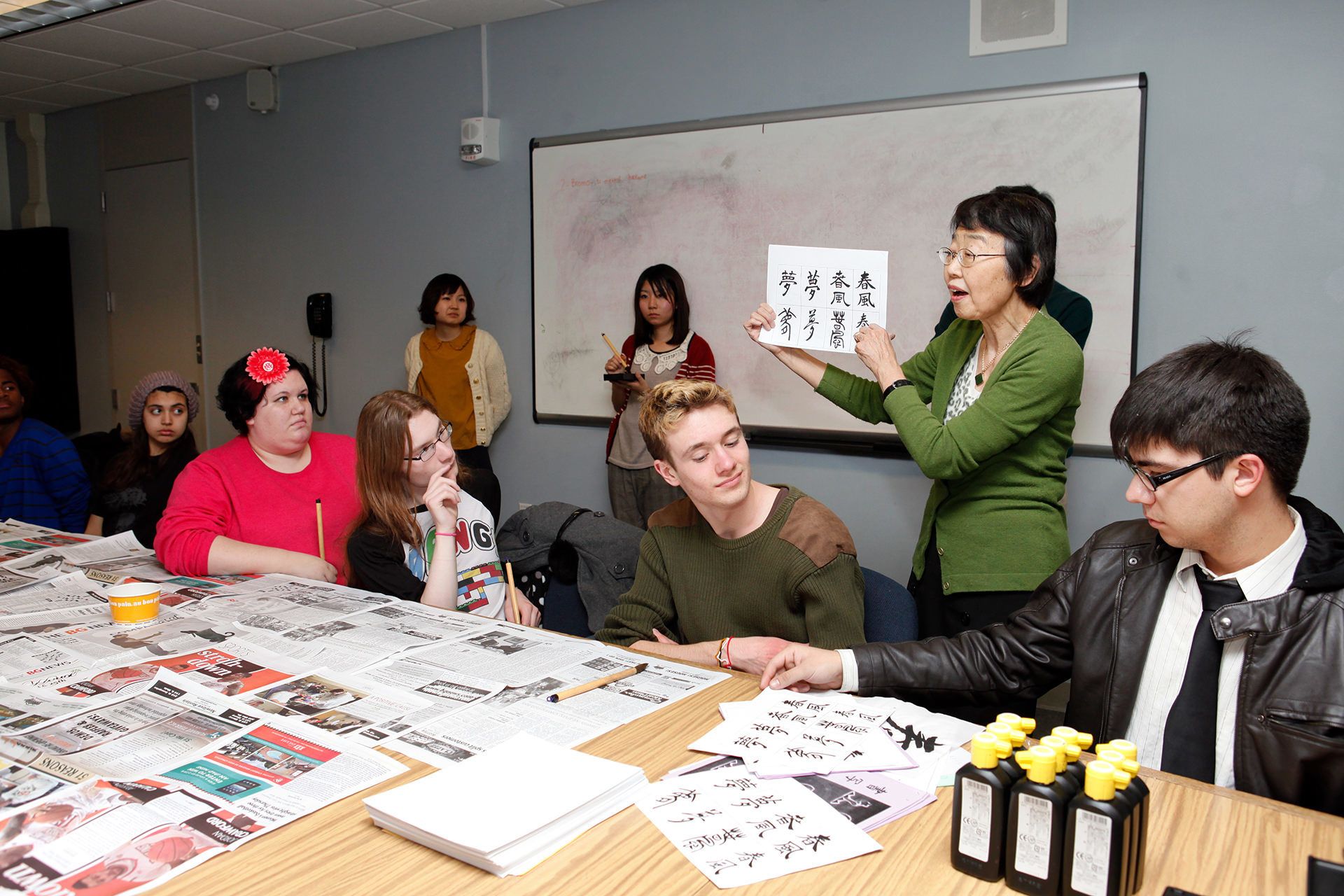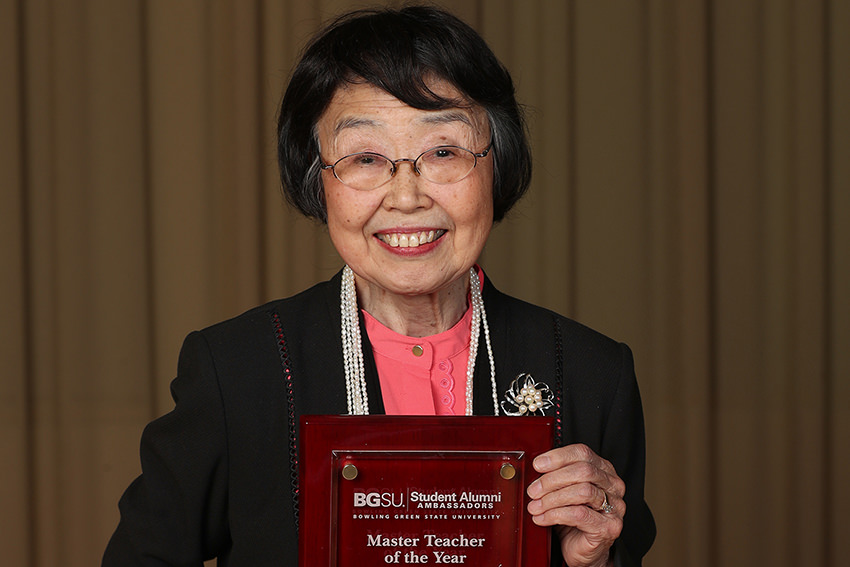Asian Studies Program
In the age of global economy and digital communication, Pacific Rim nations have become America’s close partners in multinational business, diplomacy and cultural exchange. The most populated region of the world, Asia has developed some of the fastest and most productive economies. A growing demand exists for Americans to become familiar with Asian business, journalism, government, education, information technology and service.
BGSU is one of few Ohio universities to offer a bachelor’s degree in Asian Studies. Students gain a broad knowledge of the culture and societies of East Asia, South Asia and Southeast Asia; an in-depth knowledge of one of the East Asian countries (Japan, China, and Korea); and basic conversational and reading skills of an Asian language.


FEATURED
NEWS AND STORIES

Akiko Jones Honored for Teaching Excellence
For Akiko Kawano Jones, director of the Asian Studies Program, teaching Japanese involves far more than helping students learn a language. For her, it means introducing them to an entire culture and immersing them in it as much as possible.
For her tireless devotion to her students and her extraordinary ability as an instructor, the Student Alumni Ambassadors named Jones the 2018 Master Teacher. The award includes a $1,000 cash prize.

Alumna Credits Japanese Studies for Career Success
As an undergraduate majoring in International Business in the late ’80s, Sheila Spradlin Reich planned to take Japanese only long enough to fulfill a humanities requirement and to speak just enough of the language to be employable upon graduation. “I ended up taking Japanese all the way through my junior year,” she said. “Not only did I learn the language, my eyes were also opened to a whole new culture and society.”

Asian Studies Class Returns to Hiroshima
Every two years since 2006, students in “Hiroshima and Beyond” (Asian Studies 3100) travel to Japan to observe the anniversary of the WWII atomic bomb attack and to immerse themselves in Japanese culture. The program is offered through a partnership with Hiroshima Jogakuin University, which provides lecturers and experts during the experience and places students with host families during their visit.
Updated: 10/20/2025 04:04PM

